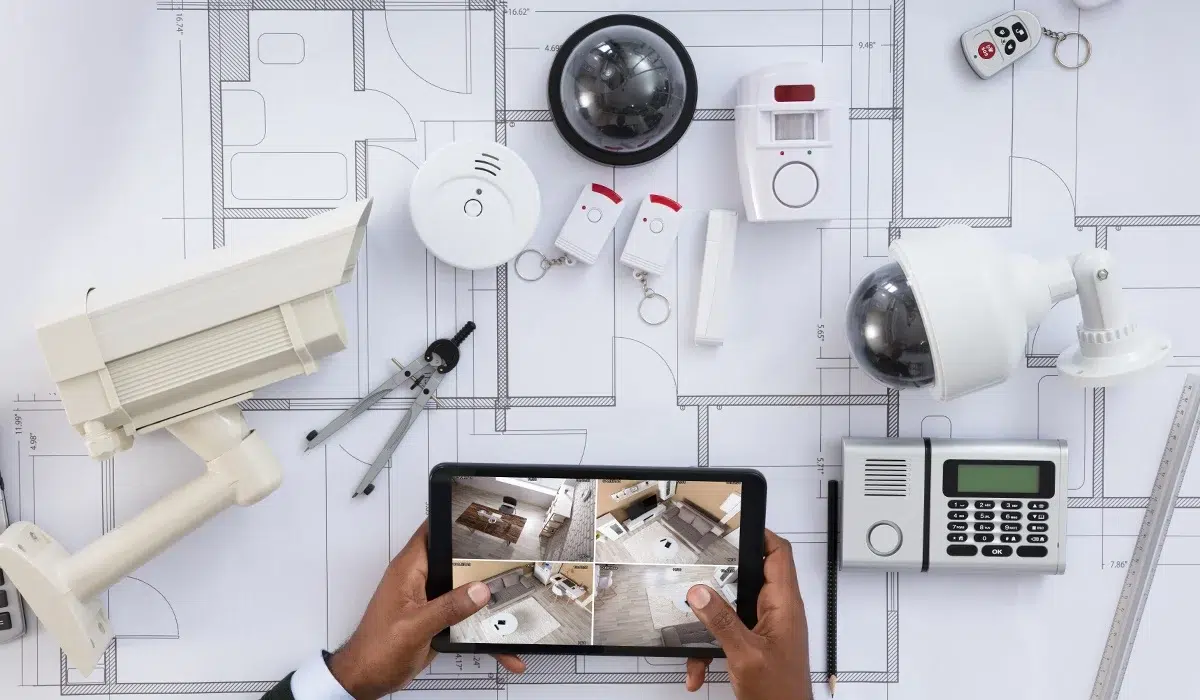How Alarm Monitoring Works: A Comprehensive Guide
June 8, 2024

Alarm monitoring refers to the process of overseeing and responding to security alerts generated by an alarm system. When an alarm is triggered, such as a break-in, fire, or medical emergency, the system sends a signal to a monitoring center operated by a professional security company. This real-time communication ensures that immediate action can be taken to address the situation and ensure your safety.
The Components of Alarm Monitoring
To better understand how alarm monitoring works, let’s explore its key components:
- Alarm Control Panel: The control panel serves as the command center for your alarm system. It receives input from various sensors and detectors placed around your property.
- Sensors and Detectors: These devices are strategically installed to detect specific events, such as motion, door/window openings, smoke, or carbon monoxide. They send signals to the control panel when triggered.
- Communication Channels: Alarm systems utilize different communication channels to transmit signals to the monitoring center. Common methods include landline, cellular, and internet-based connections.
- Monitoring Center: Staffed by trained professionals 24/7, the monitoring center receives and processes incoming alarm signals. Upon receiving an alert, the operators take immediate action based on predefined protocols.
How Does Alarm Monitoring Work?
- Alarm Trigger: When an event triggers an alarm, such as an intruder breaking a window or a cove home security smoke detector sensing a fire, the corresponding sensor or detector sends a signal to the control panel.
- Signal Transmission: The control panel receives the signal and initiates communication with the monitoring center. The choice of communication channel plays a crucial role in ensuring the signal reaches its destination swiftly and reliably.
- Monitoring Center Response: Upon receiving the alarm signal, the monitoring center’s operators assess the situation and take appropriate action. This may involve contacting the homeowner, dispatching emergency services, or verifying the alarm’s validity.
- Alert Resolution: Once the situation has been addressed, the monitoring center informs the homeowner of the outcome. If necessary, they can provide additional guidance or support.
Related: Home Security 101: Features to Look for in a Smart Security Camera
The Benefits of Alarm Monitoring
Alarm monitoring offers several benefits that significantly enhance your home security system:
- Round-the-Clock Protection: With 24/7 monitoring, your home is under constant surveillance, even when you’re away or asleep.
- Rapid Emergency Response: In the event of an emergency, professional operators can quickly dispatch emergency services to your location, potentially saving lives and minimizing property damage.
- Reduced False Alarms: Monitoring centers employ advanced technologies to verify the validity of alarms, reducing false alarms and ensuring that genuine emergencies receive prompt attention.
- Enhanced Peace of Mind: Knowing that your home is being monitored by professionals provides a sense of security and peace of mind for you and your family.
Choosing the Right Alarm Monitoring System
Choosing the right system is crucial for maximizing the effectiveness of your home security. Consider the following factors:
- Reliability: Opt for a monitoring service with a proven track record in the industry, ensuring that you can rely on their expertise when it matters most.
- Communication Channels: Evaluate the available communication options and choose one that suits your needs and provides a reliable connection to the monitoring center.
- Integration Capabilities: If you have an existing home security system such as Vivint or Ring, ensure that it can seamlessly integrate with it, avoiding the need for extensive modifications.
- Additional Features: Explore additional features offered by alarm monitoring providers, such as mobile app integration, home automation compatibility, or video surveillance options.
Conclusion
In conclusion, alarm monitoring is a vital component of any comprehensive home security system. It provides round-the-clock surveillance, rapid emergency response, and peace of mind. By understanding the components, you can make informed decisions when selecting the right system for your home.